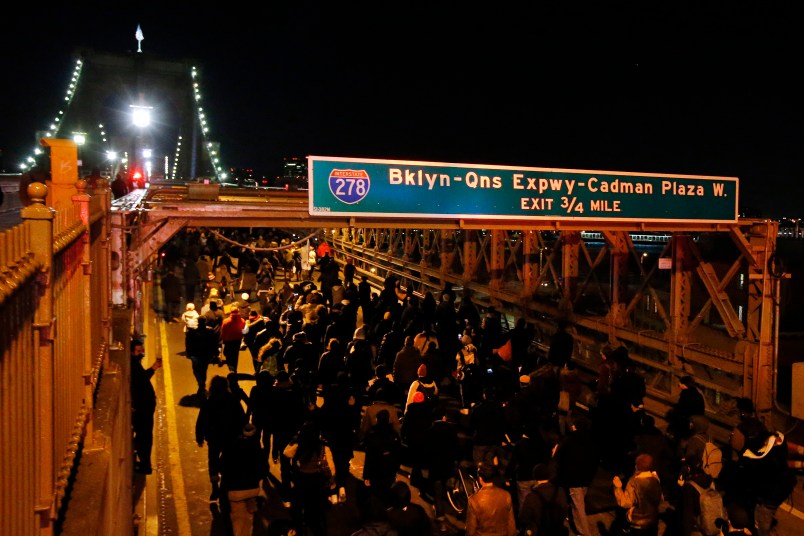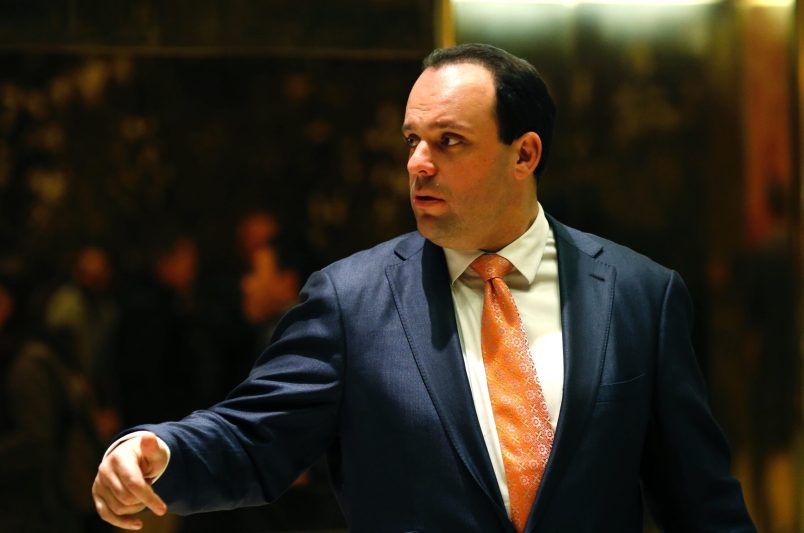Over recent weeks, as the shooting deaths of Michael Brown and Tamir Rice and the earlier chokehold death of Eric Garner have woven together into a common narrative about race, police violence and accountability, we can see something like a movement taking shape not only in individual cities but nationwide. But we should ask the question: why now?
On the one hand, you can say, watch the Garner video and the question answers itself, o the same with Brown and Rice and others over recent weeks and months. How can people not be outraged? But that’s not a sufficient answer. Because the sad truth is that there’s nothing new about any of this. Before Michael Brown and Eric Garner there was a basically unending litany of other unarmed African-American men (mainly, but not all, men) shot either under ambiguous circumstances or in cases where the use of force was clearly unwarranted or criminal. This isn’t new. The reaction to it and the tolerance of it appear to have changed.
The question has more than simple academic interest because understanding why events have unfolded as they have in recent months gives us our best shot at predicting whether this wave of controversy and protest is likely to subside back down into the status quo or whether something more lasting and consequential is afoot.
One other point that seems important to note is that despite a spate of looting in Ferguson, Missouri just after Michael Brown’s death and another in the immediate aftermath of the grand jury decision, the protests have been characterized most by their nonviolent character.
So why now?
There are a few mundane reasons. One is ubiquitous video cameras that capture incidents in a way that defy officialdom’s ability to justify or spin how an incident unfolded. This video of such a shooting from South Carolina earlier this year is perhaps one of the most extreme examples. Debate is not only concrete and usually much less subject to debate. The Internet also provides channels for these cases to hop out of individual communities and cross lines of race and geography.
Then there’s the dramatic drop in crime over the last two decades. As I’ve written before, the end of the late 20th century crime boom has led to diminishing support for capital punishment and a growing and notably bipartisan questioning of mass incarceration. So it’s not surprising that as people perceive themselves as less threatened by crime they’re more open to hearing criticism or skepticism about police.
Then there’s a demographic part of the equation. And I must note that I first got to thinking about this when I saw former TPM reporter Justin Rood raise the issue in a post on Facebook. Justin flagged this recent Pew Research public opinion study of millennials. It confirms and provides notable details about a broad reality most of us already know which is that Americans between the ages of 18 and 33 are a lot more liberal and a lot less white than any other generation in history. We see these young people, in formal politics, driving very different electoral outcomes in presidential years than in midterms. It shouldn’t surprise us to see them driving change in non-formal politics as well.
I put this out less as an argument than as an open-ended set of questions. I’m temperamentally skeptical about the ability of such a movement to sustain itself and force actual change. Police officers are consistently listed among the most trusted and ethical professions in public opinion surveys. So again, why now? And where will it go?







